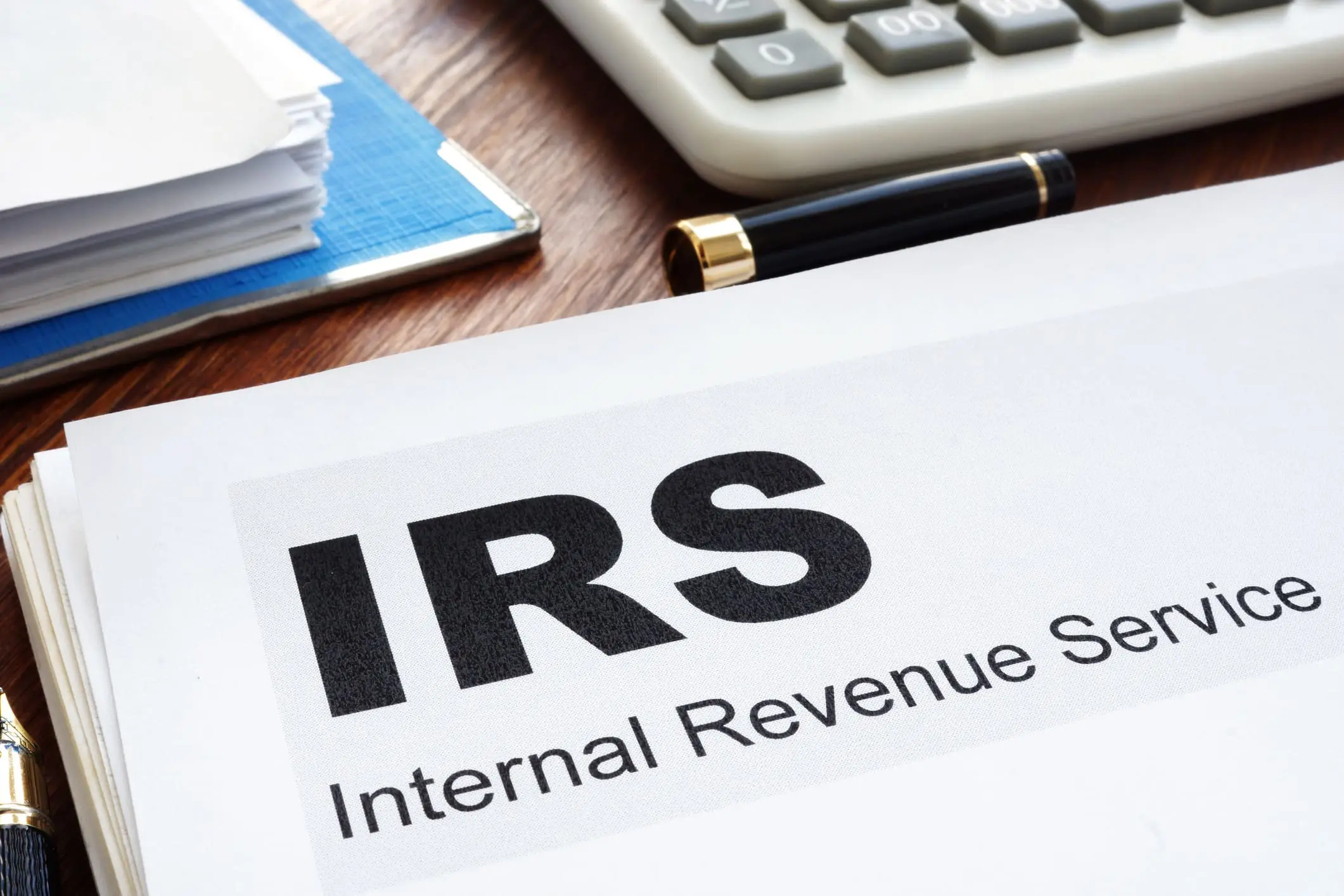As people across the nation prepare to file their 2021 tax returns, cybercriminals are taking advantage by delivering new scams designed to steal personal information and money from unsuspecting victims. Internal Revenue Service (IRS) scams happens when someone who pretends to work for the IRS contacts you by phone, email, postal mail, or a text message. Thousands of people have lost millions of dollars as well as their personal; information to tax scams, and it’s safe to assume that attackers will continue targeting individuals and businesses this year. Consider the following common scams and best practices to help protect yourself from falling victim to a tax-related scam this year.
Top 5 Tax Scams to Be Aware Of
1. SSN Scams

Taxpayers should be careful of new variations of tax-related scams. In the latest twist on a scam related to Social Security numbers, scammers claim to be able to suspend or cancel the victim’s SSN. Scammers may mention overdue taxes in addition to threatening to cancel the person’s SSN. If taxpayers receive a call threatening to suspend their SSN for an unpaid tax bill, they should just hang up.
Taxpayers should not give out sensitive information over the phone unless they are positive that the caller is legitimate. When in doubt –hang up. Here are some telltale signs of this scam. The IRS and its authorized private collection agencies will never:
- Call to demand immediate payment using a specific payment method such as a prepaid debit card, iTunes gift card or wire transfer. The IRS does not use these methods for tax payments.
- Ask a taxpayer to make a payment to a person or organization other than the U.S. Treasury.
- Threaten to immediately bring in local police or other law-enforcement groups to have the taxpayer arrested for not paying.
- Demand taxes be paid without giving the taxpayer the opportunity to question or appeal the amount owed.
Taxpayers who don’t owe taxes and have no reason to think they do should:
- Report the call to the Treasury Inspector General for Tax Administration.
- Report the caller ID and callback number to the IRS by sending it to phishing@irs.gov. The taxpayer should write “IRS Phone Scam” in the subject line.
- Report the call to the Federal Trade Commission. When reporting it, they should add “IRS Phone Scam” in the notes.
Taxpayers who owe tax or think they do should:
- View tax account information online at IRS.gov to see the actual amount owed and review their payment options.
- Call the number on the billing notice
- Call the IRS at 800-829-1040.
2. Phone Scams

With the new tax season starting, the IRS reminds taxpayers to be aware that criminals continue to make aggressive calls posing as IRS agents in hopes of stealing taxpayer money or personal information.
Here are some telltale signs of a tax scam along with actions taxpayers can take if they receive a scam call.
The IRS will never:
- Call to demand immediate payment using a specific payment method such as a prepaid debit card, gift card or wire transfer. Generally, the IRS will first mail a bill to any taxpayer who owes taxes.
- Threaten to immediately bring in local police or other law enforcement groups to have the taxpayer arrested for not paying.
- Demand that taxes be paid without giving taxpayers the opportunity to question or appeal the amount owed.
- Call unexpectedly about a tax refund.
Taxpayers who receive these phone calls should:
- Record the number and then hang up the phone immediately.
- Report the call to the Treasury Inspector General for Tax Administration (TIGTA) using their IRS Impersonation Scam Reporting form or by calling 800-366-4484.
- Report the number to phishing@irs.gov and be sure to put “IRS Phone Scam” in the subject line.
3. University students and staff of impersonation email scams

The IRS warned of an ongoing IRS-impersonation scam that appears to primarily target educational institutions, including students and staff who have “.edu” email addresses. The IRS has received complaints about the impersonation scam in recent weeks from people with email addresses ending in “.edu.” The phishing emails appear to target university and college students from both public and private, profit and non-profit institutions.
The suspect emails display the IRS logo and use various subject lines such as “Tax Refund Payment” or “Recalculation of your tax refund payment.” It asks people to click a link and submit a form to claim their refund.
The phishing website requests taxpayers provide their:
- Social Security number
- Name
- Date of Birth
- Prior Year Annual Gross Income (AGI)
- Driver’s License Number
- Electronic Filing PIN
- And other personally identifiable information
People who receive this scam email should not click on the link in the email, but they can report it to the IRS. For security reasons, save the email using “save as” and then send that attachment to phishing@irs.gov or forward the email as an attachment to phishing@irs.gov.
Taxpayers who believe they may have provided identity thieves with this information should consider immediately obtaining an Identity Protection PIN. An IP PIN is a six-digit number that helps prevent identity thieves from filing fraudulent tax returns in the victim’s name.
Taxpayers who attempt to e-file their tax return and find it rejected because a return with their SSN already has been filed should file a Form 14039, Identity Theft Affidavit PDF, to report themselves as a possible identity theft victim. See Identity Theft Central to learn about the signs of identity theft and actions to take.
4. Tax return preparer

As people begin to file their 2021 tax returns, taxpayers are reminded to avoid unethical ghost tax return preparers.
A ghost preparer is someone who doesn’t sign tax returns they prepare. Unscrupulous ghost preparers often print the return and have the taxpayer to sign and mail it to the IRS. For e-filed returns, the ghost will prepare but refuse to digitally sign as the paid preparer.
Ghost tax return preparers may also:
- Require payment in cash only and not provide a receipt.
- Invent income to qualify their clients for tax credits.
- Claim fake deductions to boost the size of the refund.
- Direct refunds into their bank account, not the taxpayer’s account.
By law, anyone who is paid to prepare or assists in preparing federal tax returns must have a valid Preparer Tax Identification Number (PTIN). Paid preparers must sign and include their PTIN on the return. Not signing a return is a red flag that the paid preparer may be looking to make a quick profit by promising a big refund or charging fees based on the size of the refund.
It’s important for taxpayers to choose their tax return preparer wisely. The Choosing a Tax Professional page on IRS.gov has information about tax preparer credentials and qualifications. The IRS Directory of Federal Tax Return Preparers with Credentials and Select Qualifications can help identify many preparers by type of credential or qualification.
No matter who prepares their return, taxpayers should review it carefully and ask questions about anything that’s not clear before signing. They should verify their routing and bank account number on the completed tax return for any direct deposit refund. Taxpayers should watch out for ghost preparers putting their bank account information on the returns.
Taxpayers can report preparer misconduct to using IRS Form 14157, Complaint: Tax Return Preparer PDF. If a taxpayer suspects a preparer filed or changed their tax return without their consent, they should file Form 14157-A, Tax Return Preparer Fraud or Misconduct Affidavit PDF.
5. “Tax Transcript” email scam

The Internal Revenue Service and Security Summit partners recently warned the public of a surge of fraudulent emails impersonating the IRS and using tax transcripts as bait to entice users to open documents containing malicious software, also known as malware.
The scam is especially problematic for businesses whose employees might open the malware because it can spread throughout the network and take months to remove.
This well-known malware, known as Emotet, generally poses as specific banks and financial institutions to trick people into opening infected documents. However, in the past few weeks, the scam masqueraded as the IRS, pretending to be from “IRS Online.” The scam email carries an attachment labeled “Tax Account Transcript” or something similar, and the subject line uses some variation of the phrase “tax transcript.”
The IRS reminds taxpayers it does not send unsolicited emails to the public, nor would it email a sensitive document such as a tax transcript, which is a summary of a tax return. The IRS urges taxpayers not to open the email or the attachment. If using a personal computer, delete or forward the scam email to phishing@irs.gov. If you see these while using an employer’s computer, notify the company’s technology professionals.
The United States Computer Emergency Readiness Team (US-CERT) issued a warning in July about earlier versions of the Emotet in Alert (TA18-201A) Emotet Malware.
US-CERT has labeled the Emotet Malware “among the most costly and destructive malware affecting state, local, tribal, and territorial (SLTT) governments, and the private and public sectors.”
Source: Tax Scams / Consumer Alerts | Internal Revenue Service
